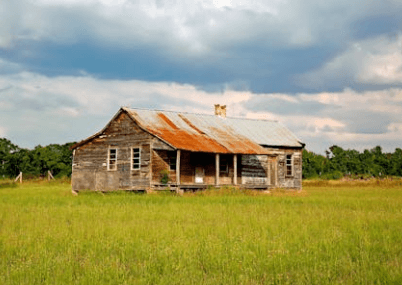Discovering who to contact about abandoned property in Florida can be daunting for aspiring real estate investors or individuals seeking new homes with untapped potential. Navigating the complex landscape of finding, acquiring, and transforming these forgotten assets requires insider knowledge and a bit of guidance. This blog will unravel the mysteries behind who to contact about abandoned property in Florida and outline the steps necessary to buy them, turning what may seem like a daunting endeavor into a rewarding investment. Whether you’re a seasoned investor or a newcomer to the real estate scene, understanding the process and knowing the right contacts can make all the difference in unlocking the potential of abandoned properties.
Among the myriad of real estate professionals navigating Florida’s abandoned properties, investors Steve Daria and Joleigh have made a name for themselves. Their expertise and success stories offer invaluable insights for anyone looking to venture into this challenging yet lucrative market.
Who to Contact About Abandoned Property in Florida
Identifying the right contacts for addressing issues related to abandoned property in Florida can be a critical step toward resolving potential concerns.
Whether you are a concerned citizen or a property owner, knowing who to contact can make all the difference in the outcome of your situation.
This section will guide you through the agencies and legal avenues available for those who encounter or are affected by abandoned properties.

Local Government Authorities
Contacting local government authorities is the initial step in exploring abandoned property in Florida.
These offices oversee the management and regulation of abandoned properties within their jurisdictions. Key contacts include:
- Code Enforcement: Report abandoned properties and gather information on existing ones from the local code enforcement department, which enforces property maintenance codes.
- Property Appraiser’s Office: The property appraiser’s office assesses property values and provides details on abandoned properties, such as ownership information and potential tax liens.
- City or County Clerk: The clerk’s office maintains public records and provides access to property deeds, liens, and ownership history.
Law Enforcement Agencies
Law enforcement agencies may intervene in dealing with abandoned properties, especially those with safety or security hazards.
To report abandoned properties and inquire about their status, contact the local police department or sheriff’s office.
They can also provide information about potential penalties for neglecting abandoned properties.
Get An Offer Today, Sell In A Matter Of Days…
Non-Profit Organizations and Community Groups
Non-profit organizations and community groups often engage in revitalization efforts that involve abandoned properties. These organizations may offer information or assistance programs for potential buyers.
Reach out to local non-profits or community development organizations to explore available resources. These organizations may also have access to funding or grants that can help purchase and renovate abandoned properties.
Real Estate Professionals
Real estate professionals, including agents and brokers, offer invaluable insights and assistance in acquiring abandoned properties.
They have access to listings and market knowledge, guide buyers through the process, and navigate legal and financial complexities.
Additionally, they can provide information on potential government incentives and resources available for renovating abandoned properties.

How to Buy Abandoned Property in Florida
Once you’ve identified an abandoned property of interest, follow these steps to complete the purchase:
- Research and Due Diligence: Gather information on the property’s history, condition, and legal issues. Conduct a thorough inspection to assess renovation or repair needs.
- Contact the Owner: If the property is privately owned, attempt to contact the owner to express interest in purchasing.
- Negotiate a Purchase Agreement: To formalize the agreement, negotiate terms and conditions with the owner, including the purchase price and any contingencies.
- Title Search and Closing: Perform a title search to confirm the property’s clean title. Then, proceed with closing, completing legal documents, and transferring ownership.
- Renovation or Redevelopment: Depending on the property’s condition, renovation or redevelopment efforts can be undertaken to make it habitable or marketable.
- Compliance with Legal Requirements: Obtain necessary permits and approvals for renovation or redevelopment projects to ensure compliance with legal regulations.
Frequently Answered Questions
Here, we’ll explore the most frequently asked questions about ‘Who to Contact About Abandoned Property in Florida and How to Buy Them.’
Can I claim an abandoned property in Florida for free?
Claiming an abandoned property for free is a complex process in Florida. The state has laws regarding adverse possession, which allows for claiming ownership under specific conditions over an extended period, usually seven years.
These conditions include paying property taxes and openly occupying the land. It’s important to note that this route is not straightforward, and legal advice is strongly recommended.
What are the risks of buying an abandoned property?
Buying an abandoned property comes with its share of risks. The primary ones include outstanding taxes, liens, or other encumbrances on the property.
There might also be disputes about the property’s boundaries or ownership, and the property could be in a state of disrepair, necessitating significant investment.
To mitigate these risks, a thorough title search and securing title insurance are crucial.
Are there any incentives for restoring abandoned properties in Florida?
Yes, some local governments in Florida offer incentives to restore abandoned or blighted properties to improve neighborhoods.
These incentives can include reduced property taxes, grants, or low-interest loans.
It’s advisable to contact the local economic development office or a city planner to learn about available programs in the area where the property is located.
Conclusion
By adhering to these steps and engaging with pertinent authorities and professionals, you can successfully navigate purchasing abandoned property in Florida. Conducting comprehensive research and exercising due diligence are essential in reducing risks and optimizing investment opportunities. Whether you seek a renovation project, development opportunity, or community contribution, abandoned properties in Florida offer diverse avenues for real estate investment.
**NOTICE: Please note that the content presented in this post is intended solely for informational and educational purposes. It should not be construed as legal or financial advice or relied upon as a replacement for consultation with a qualified attorney or CPA. For specific guidance on legal or financial matters, readers are encouraged to seek professional assistance from an attorney, CPA, or other appropriate professional regarding the subject matter.

